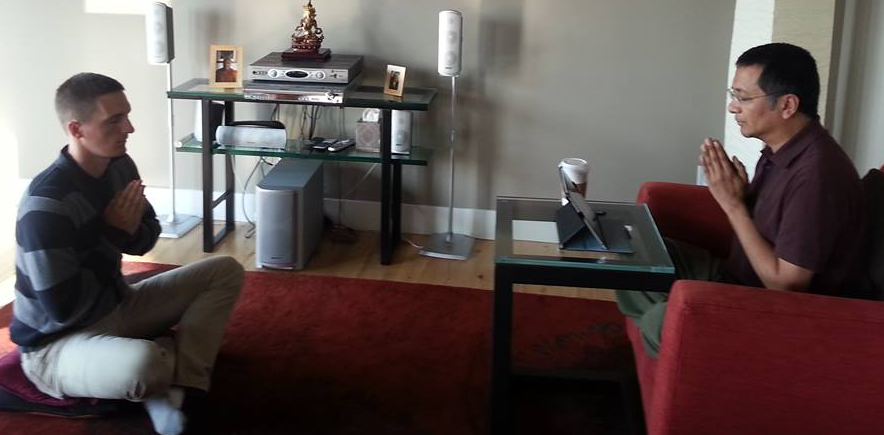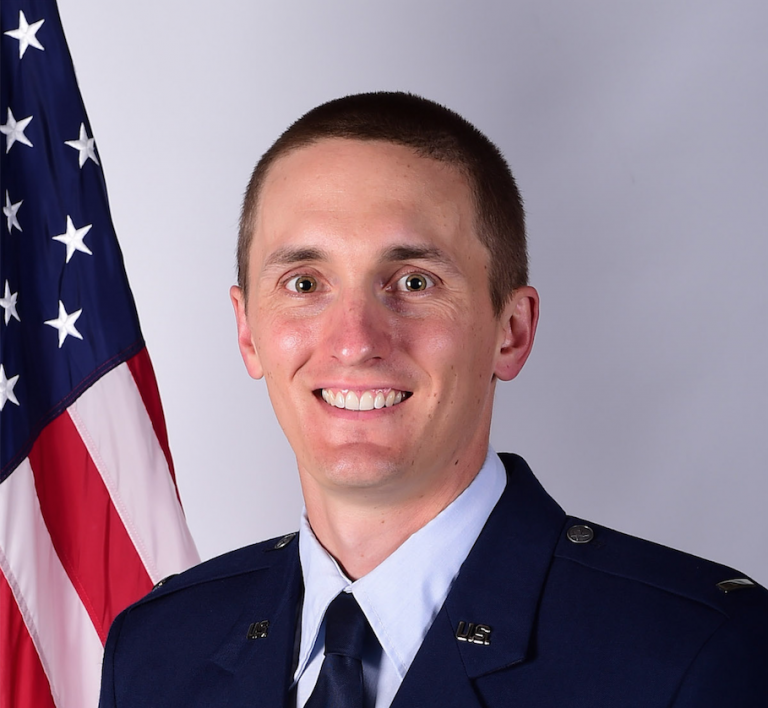As the only Buddhist chaplain at Buckley Air Force base in Aurora, Colorado—and the entire Air Force Reserve, for that matter—Brett Campbell has a small flock of 14 self-identifying Buddhists to serve. But the possibility of bringing the benefits of mindfulness to this large military community in the Denver suburbs are endless.
“Because I’m so new, there’s been a lot of opportunity to really engage about what mindfulness is and how it could be beneficial as I move forward developing programs [on the base],” said Campbell, 33, who graduated with a master’s of divinity from Naropa University in 2013 and has been ordained as an upasaka [lay devotee] by Dzogchen Ponlop Rinpoche.
Campbell was brought on to active duty earlier this month after completing officer training. Typical duties of a military chaplain include presiding over funerals, retirements, changes in command, and other ceremonies, as well as counseling and ministering to people of their own faith. There are two other chaplains, both Christian, on the base.
Of the 5,071 military chaplains across all branches, nine are Buddhist, according to numbers provided by the Department of Defense press office. Four Buddhist chaplains serve in the Army Reserve, three in the Army, and one in the Navy Reserve.
The U.S. military’s first Buddhist chaplain, Lt. Jeanette Shin, started in 2004 (she has since retired). Since then, the military has seen the first chaplains of other faiths. In 2011, Pratima Dharm, a U.S. Army captain, became the military’s first Hindu chaplain.
Related: Q & A with Lt. Jeanette Shin, U.S. Military’s First Buddhist Chaplain
Campbell, who has also served as a hospital chaplain, said he didn’t have any lifelong aspirations of joining the military.
“I did the Peace Corps and lived in Mongolia, and when I got back, I didn’t really know what I wanted to do. But I knew that I wanted to do something with Buddhism,” said Campbell, who grew up Catholic and was first introduced to Buddhism when he picked up Lama Surya Das’s Awakening the Buddha Within at a bookstore during college. After learning about the available chaplaincy fields, which also include prison and hospice work, Campbell said he felt “drawn” to the military because of the diversity of age, race, income, and background of its service members.

Campbell is still settling into his role, and he intends to start both a weekly Buddhist group—with a meditation, dharma talk, and Q&A session—and an MBSR-inspired program for stress reduction aimed at addressing the military population’s specific needs.
“I’d like to make [these programs] as accessible as possible to anybody who wants to come in, [whether or not they are a] practicing Buddhist, or no matter what kind of Buddhism they practice,” Campbell said.
“I think it’s very common for people new to meditation [to think of it] as a cure-all. So what I’ve really tried to focus on is this idea that meditation is just another tool in your toolbox for stress reduction,” Campbell said.
Other branches of the military have incorporated mindfulness practices, but Campbell said he hasn’t found any examples of mindfulness being used in the Air Force.
Related: The Pentagon Meditation Club
Thank you for subscribing to Tricycle! As a nonprofit, we depend on readers like you to keep Buddhist teachings and practices widely available.
